Athens Suburbs On Fire As Greece Calls On EU For Help
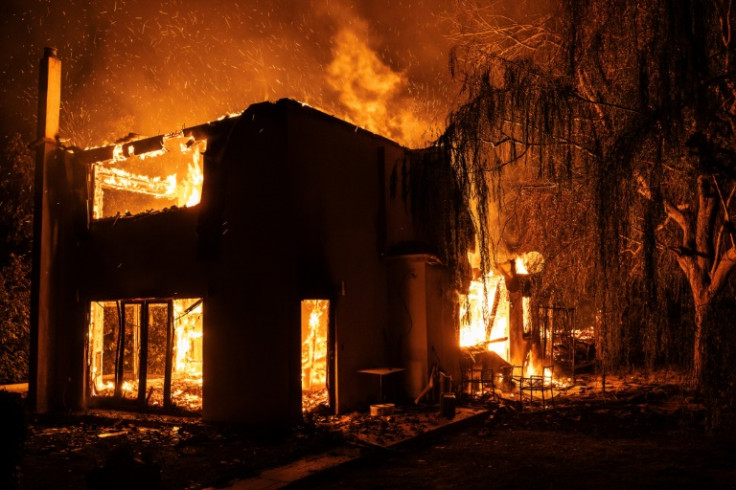
A massive wildfire blazed into Athens' northeastern suburbs on Monday as hundreds of firefighters battled to contain it, forcing thousands of residents to flee their homes and sparking a Greek government appeal for international help.
In scenes never before seen in the Greek capital, residents wearing masks against the choking smoke were desperately dousing their homes with water hoses in the leafy suburbs of Nea Penteli and Vrilissia in an effort to render them less vulnerable to fire.
"(It's) the first time ever the fire has come here," said Melina Kritseli, 40, a civil servant living in a two-storey white house in Patima Halandriou, another Athens suburb that was evacuated.
"I took my children to a friend's house to be safe," she told AFP as her husband hosed the ground and grass outside their house.
Television footage showed several cars gutted by fire and the roofs of stately homes burning as water-bombing helicopters roared overhead.
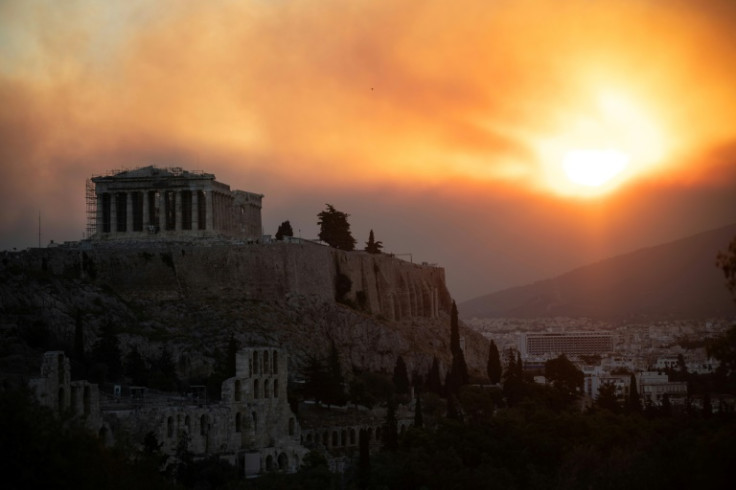
"The situation is dramatic," Penteli mayor Natassa Kosmopoulou told news portal newsit.gr.
"A school and homes are on fire, and I can see the fire coming towards the town hall," she said.
The National Observatory, Greece's foremost institute monitoring natural hazards, narrowly escaped.
Greece on Monday formally called for EU assistance, a spokesman said.
"The EU civil protection mechanism was activated upon request of the Greek authorities," EU spokesman Balazs Ujvari said in a statement, adding that Italy, France, the Czech Republic and Romania were sending units to help.
"We stand with Greece as it battles devastating fires," EU chief Ursula von der Leyen wrote on X.
French Interior Minister Gerald Darmanin said Paris was sending 180 firefighters, 55 trucks and a helicopter to assist their hard-pressed Greek colleagues.
Help from Spain and Turkey is also being "finalised", the Greek civil protection ministry said.
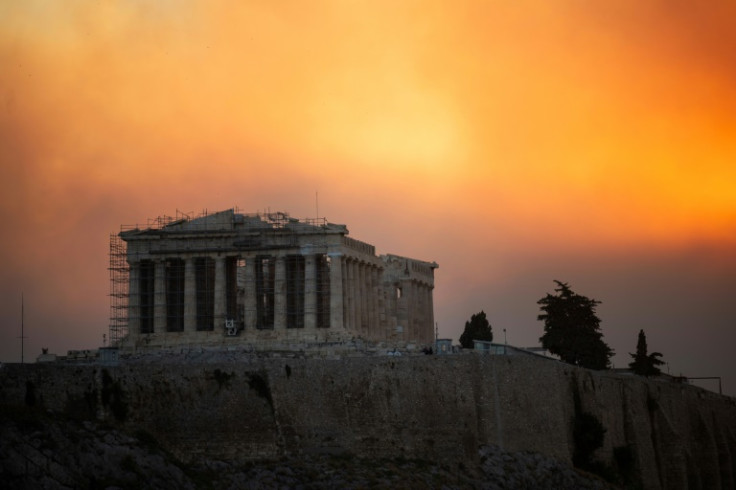
The wildfire started on Sunday afternoon in the town of Varnavas, some 35 kilometres (22 miles) northeast of Athens.
Aided by strong winds, it grew to a 30-kilometre long frontline of flames, more than 25 metres (80 feet) high in places, according to state TV ERT.
"I heard my animals bleating and dying," Dimitris Megagiannis, a goat herder near Penteli, told Mega TV station.
Over 700 firefighters with nearly 200 fire engines and over 30 aircraft were trying to contain the fire.
Authorities opened the Olympic stadium in northern Athens and other stadiums to house thousands of people evacuated from the path of the blaze. Three major hospitals have been placed on standby.
One firefighter suffered serious burns, another was hospitalised with breathing trouble and 13 other people were treated for milder respiratory problems, fire brigade spokesman Vassilis Vathrakogiannis said.
Several smaller communities and towns, including Marathon, which gave the Olympic long distance race its name, started to evacuate on Sunday.
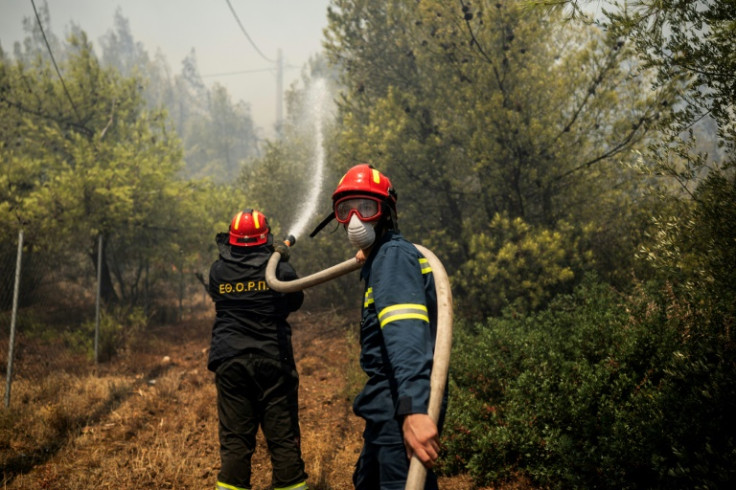
Smoke drifted through central Athens as thick grey clouds engulfed Mount Pentelikon, which is known for producing the marble used in the Acropolis and other ancient buildings.
"Civil protection forces battled hard throughout the night, but despite superhuman efforts, the fire evolved rapidly," Vathrakogiannis said.
The wind had rekindled the fire in 40 different locations on Monday, he said.
A children's hospital and a military medical facility in Penteli were evacuated at dawn, Vathrakogiannis said. Another hospital was evacuated during the day.
The destruction revived memories of the Mati disaster, the coastal area near Marathon where 104 people died in July 2018 in a tragedy later blamed on evacuation delays and errors.
The summer wildfire season in Greece this year has seen dozens of daily blazes after the Mediterranean country recorded its warmest winter and the hottest June and July since reliable data collection began in 1960.
Temperatures around Athens were forecast to peak at 39 degrees Celsius (102 degrees Fahrenheit) on Monday, with wind gusts of up to 50 kilometres (31 miles) per hour.
"Forest fire near you. Follow the instructions of the authorities," said SMS messages sent to people in the Attica region, indicating in which direction to flee.
Civil Protection Minister Vassilis Kikilias issued a warning Saturday that half the country faced a high risk of fires due to high temperatures, strong winds and drought conditions.
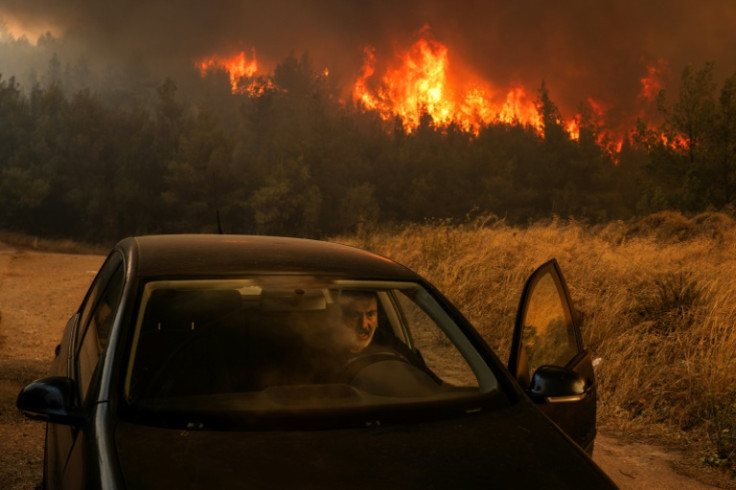
On Monday he said that the fire had spread even though a water-bombing aircraft reached the area within five minutes.
"We're working 24-hour shifts, all of us," said fireman Marinos Peristeropoulos.
"The fire spread very quickly because of the strong wind," he told AFP near one of the hotspots in Grammatiko.
Scientists say that human-induced fossil fuel emissions are worsening the length, frequency and intensity of heatwaves across the world.
Rising temperatures are leading to longer wildfire seasons and increasing the area burnt in the flames, according to the UN Intergovernmental Panel on Climate Change.
Other parts of Europe are also struggling with high temperatures.
Parts of France rose above 40C on Sunday. In Rome, temperatures were expected to reach 38C Monday and remain around 36C this week.
In the Netherlands, temperatures between 32C and 35C are expected.
© Copyright AFP 2025. All rights reserved.





















